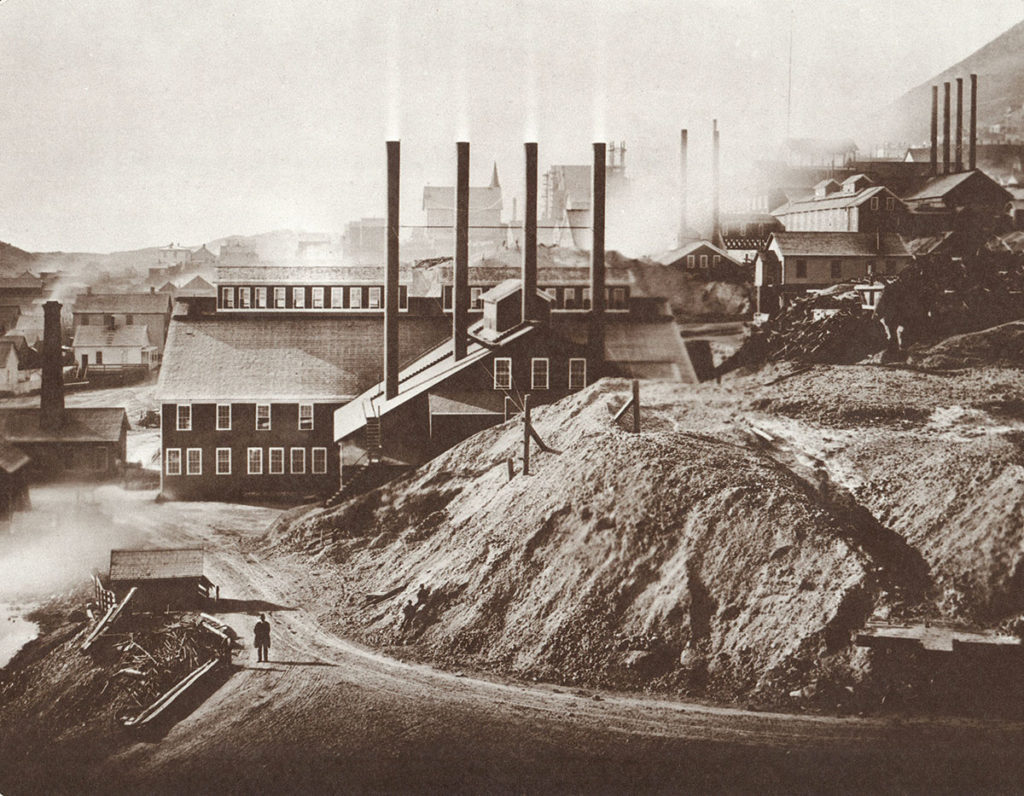Lincoln Union Club
January-February 2018
African Americans on The Comstock fought for equality.
BY ERIC CACHINERO
Blood and silver soaked the earth in the mid 1860s. Seemingly just as quickly as the blood from Civil War battles was spilled in the eastern United States during the conflict’s culmination, silver was scooped from the recently formed Comstock district. This bizarre pseudo reciprocal relationship was commonplace during the Civil War, and although much of the bloodshed ceased with the war officially ending May 9, 1865, the fight for freedom did not. This held truer for no one more than recently freed former slaves—many of whom recognized that the fight for equality had just begun. That fight took many shapes and forms, but here in Nevada, the organizational body for Virginia City’s African American residents—The Lincoln Union Club—fought tooth and nail for equality for all Nevadans.

FREEDOM FIGHTERS
By the time the dust from the war had settled and the 1870s steamed ahead, African Americans nationwide were still riding the wave of optimism that came during the Reconstruction era. The ratification of the 13th, 14th, and 15th Amendments marked the abolition of slavery, granted citizenship to former slaves, and allowed black men to vote, respectively. These amendments promised a new era of equality, prompting the formation of political action groups nationwide.
Because a large number of African Americans lived in the South at the time, the movement gained its momentum there, and spread to different parts of the country. African Americans built schools and held political offices, and many often openly associated and mobilized votes for the Republican Party. Political action organizations formed by African Americans began popping up in places like New York and Denver, and eventually right here in Nevada.
THE COMSTOCK CONNECTION
The Lincoln Union Club was formed on Feb. 16, 1870, and aimed to address the unequal treatment of African Americans on The Comstock. Preacher, civil rights activist, and Nevada’s first black doctor, W. H. C. Stephenson, was named presid
ent at the club’s inaugural meeting. Under his leadership—and that of five other club officers—the group addressed injustices ranging from school conditions to taxes.
In a 2011 article written by John Reid titled “School Segregation in Nineteenth-Century Nevada,” Reid explains that president of the Lincoln Union Club W.H.C. Stephenson considered it a “monstrous injustice” to exclude African American’s from public schools, especially considering that they paid taxes like everyone else. “To Stephenson, integration was not the primary issue—exclusion from education was the problem,” Reid writes. “In Stephenson’s words, ‘To colored or separate schools, the people have raised no objection; but school privileges they claim as a matter of right and justice.’”
But the Lincoln Union Club didn’t exclusively address injustices; it celebrated victories, as well. Reid’s article claims that enthusiasm abounded. “The Reconstruction-era optimism is evident in a statement made by one of the members at the time of the group’s founding,” he writes. “According to this member, ‘the object of our club is for united political action throughout the state, in view of the good time coming.’”
One of these victories was the ratification of the 15th Amendment in April 1870. The Lincoln Union Club planned a celebratory parade. The “Hall of the Lincoln Union Club” was the starting place for the parade, indicating that a permanent meeting place had been decided upon.
INVINCIBLE IDEOLOGIES
Like many other political, social, and fraternal organizations that existed on The Comstock during its boom, the Lincoln Union Club faded once the silver began to dry up. It is believed that the club operated until at least 1876, though not much else is known.
Though the club’s time in the world was brief, its influence is not forgotten. The ideologies professed by the club kicked off a multi-century fight for equality in Nevada, and in many ways, its messages and triumphs still echo throughout the state to this day.
ELKO REPUBLICAN CLUB
The Lincoln Union Club wasn’t the only African American political action organization in the state. The Elko Republican Club was a “literary and political” club that existed in Elko in the 1870s. In addition to civil rights, the group encouraged intellectual discussions and debate.
